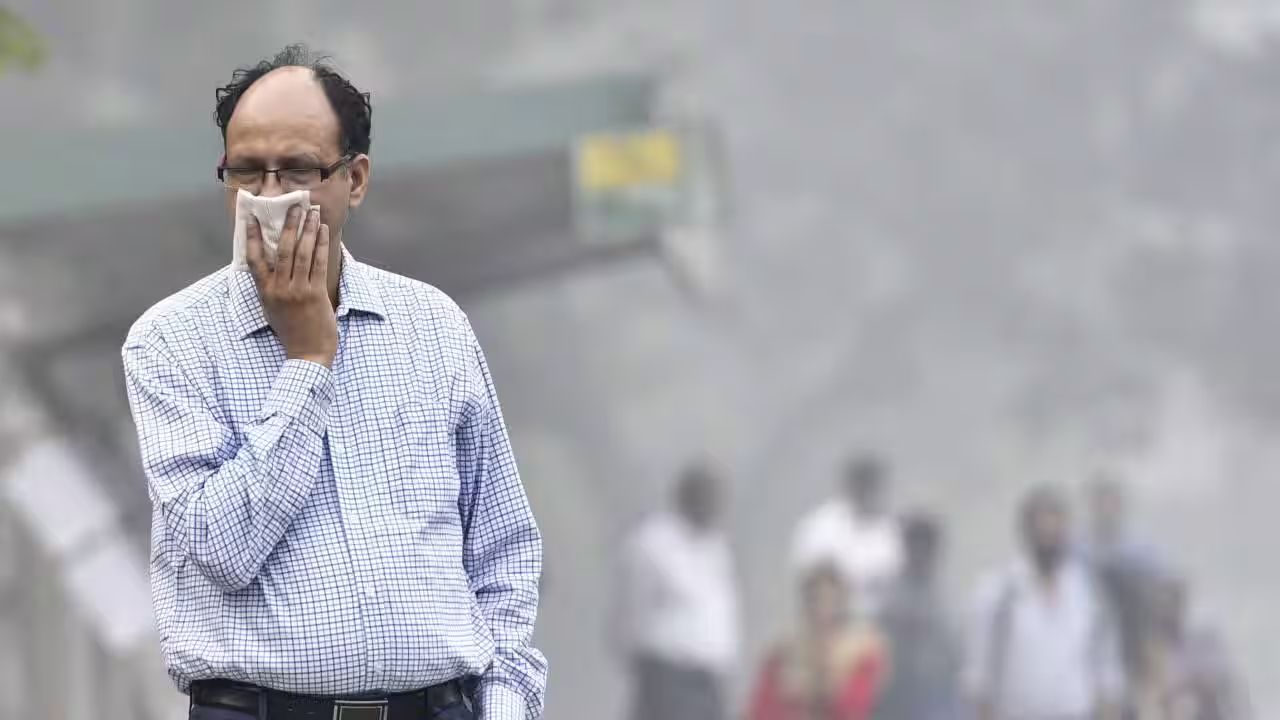 English
English

Dr Khilnani has particularly advised the elderly and those with chronic lung disease or chronic heart disease to take this ‘severe’ air quality seriously and do the needful. They must leave the city, if they can for at least 6 to 8 weeks.

Take extra precautions against deteriorating air quality across Delhi
New Delhi: The Air Quality Index (AQI) of the National Capital has been ‘poor’ and ‘very poor’ during the last week with the ‘very poor’ category today on Sunday morning.
Keeping in view the deteriorating air quality across Delhi with ‘severe’ in some areas, a former All India Institute Of Medical Sciences (AIIMS) Senior pulmonologist Dr Gopi Chand Khilnani has advised the Delhi residents to leave the city for at least six to eight weeks or relocate, if they can afford. Dr Khilnani has particularly advised the elderly and those with chronic lung disease or chronic heart disease to take this ‘severe’ air quality seriously and do the needful.
In the morning in some areas including Anand Vihar, Chandni Chowk, Nehru Nagar, RK Puram, Rohini and many other areas recorded an AQI of over 400 which is considered to be ‘severe’.
There seems to be no respite from the rising pollution in Delhi. Dr Gopichand Khilnani, a former All India Institute of Medical Sciences (AIIMS) and senior pulmonologist, has advised those who are able to leave Delhi. He said that those with chronic lung or heart conditions, or those who are oxygen-dependent, should try to stay out of Delhi until mid- to late-December.
Dr. Khilnani, Chairman of the PSRI Institute of Pulmonary Medicine, said, "Not everyone can leave Delhi, as it's not easy. But for those with chronic lung disease, heart disease, or those on oxygen, and who have the option of moving to a less polluted area—I would very safely advise them to leave Delhi for the next 6-8 weeks."
He says this step is necessary to prevent breathing difficulties, the need for oxygen, and other complications.
Dr. Khilnani explained that according to an AIIMS study, pollution hinders lung development in children. He said that while 90% of COPD (chronic obstructive pulmonary disease) cases used to be caused by tobacco or smoking, now 50% are caused by indoor and outdoor air pollution.
He further said, "Earlier, 80% of lung cancer cases were found in tobacco smokers, but now 40% of patients are those who have never smoked. Importantly, lung cancer is now rapidly increasing among young people as well."
According to Dr. Khilnani, pollution affects not only the lungs, but also the heart, brain, kidneys, intestines, endocrine system, and immunity.